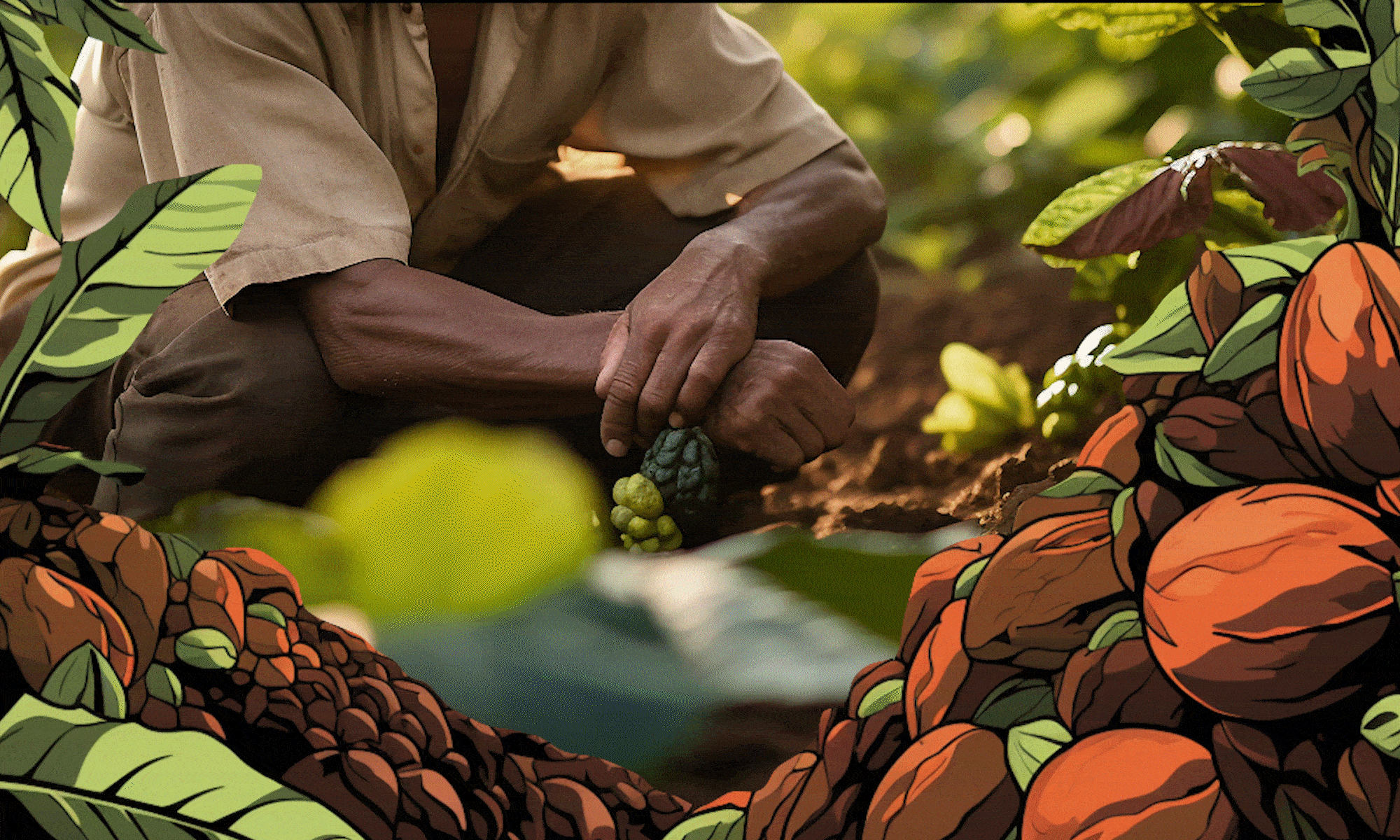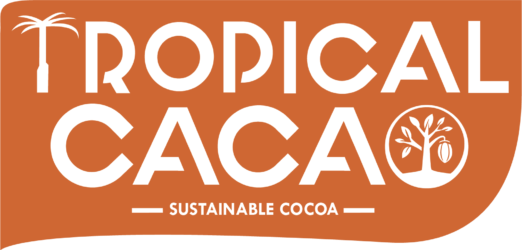Cacao farming is the lifeblood of chocolate production, but for many small-scale farmers, it’s a struggle to make ends meet. Despite cacao’s global demand and value, most cacao farmers live in poverty, facing economic instability and limited opportunities. In this article, we’ll delve into the economic realities of cacao farming, the systemic challenges that perpetuate poverty, and the initiatives aimed at creating a more equitable industry.
The Economic Reality of Cacao Farming
- Low Farmer Incomes
Cacao prices are subject to global market fluctuations, leaving farmers with little control over their income. Most cacao farmers earn less than $1.90 per day, below the global poverty line.
- Rising Production Costs
Fertilizers, pesticides, and labor costs continue to rise, squeezing already thin profit margins. Additionally, maintaining or expanding farms often requires significant investment that many farmers cannot afford.
- Limited Market Power
Cacao farmers typically sell their beans to intermediaries, who dictate prices and often pay less than fair market value. Farmers have limited bargaining power, making them vulnerable to exploitation.
- Financial Insecurity
Market volatility creates uncertainty, making it difficult for farmers to plan for the future. Sudden drops in cacao prices can devastate entire farming communities.
Challenges Driving Economic Inequity
- Lack of Infrastructure
In many cacao-growing regions, poor infrastructure—such as inadequate roads, storage facilities, and processing centers—reduces farmers’ ability to sell their beans at competitive prices.
- Knowledge Gaps
Many farmers lack access to education on sustainable farming practices, business management, and financial literacy, preventing them from improving yields or diversifying income streams.
- Supply Chain Inequality
The cacao supply chain heavily favors large corporations and intermediaries, leaving farmers with only a fraction of the final product’s value.
- Climate Vulnerability
Unpredictable weather patterns, pests, and diseases caused by climate change further reduce yields and income, trapping farmers in a cycle of economic instability.
Breaking the Cycle: Solutions for Economic Empowerment
- Fair Trade Initiatives
How It Works: Fair Trade certification ensures farmers receive a guaranteed minimum price for their cacao, regardless of market fluctuations.
Impact: Provides stable income and additional premiums for community development projects.
- Direct Trade Models
What It Is: Companies work directly with farmers, cutting out intermediaries and paying higher prices for quality beans.
Benefits: Improves farmer income while fostering long-term partnerships.
- Farmer Cooperatives
Purpose: Farmers pool resources to collectively negotiate better prices, access credit, and invest in infrastructure.
Examples: Cooperatives also provide education and training opportunities for members.
- Diversifying Income Streams
Approach: Encouraging farmers to grow additional crops or engage in agroforestry can reduce dependence on cacao.
Result: Creates financial stability and resilience against market fluctuations.
The Role of Companies in Economic Sustainability
Large chocolate companies hold significant power to drive change within the cacao industry. Many are now investing in sustainable sourcing programs, including:
- Supporting Farmer Education
Training farmers in productivity, quality improvement, and business skills helps them maximize profits and minimize waste.
- Providing Financial Resources
Offering access to microloans, grants, and financial planning tools empowers farmers to invest in their farms and plan for the future.
- Promoting Transparent Supply Chains
Using blockchain and other technologies to track cacao from farm to bar ensures fair compensation and ethical sourcing practices.
Empowering Farmers: Tropical Cacao’s Commitment
At Tropical Cacao, we are dedicated to creating a more equitable cacao industry. Our initiatives focus on:
Fair Pricing: Ensuring farmers are paid fairly for their high-quality beans.
Education and Training: Providing resources to help farmers improve yields and access premium markets.
Community Investment: Supporting local infrastructure projects that benefit farming communities.
We believe that economic empowerment is the key to sustainable cacao farming, benefiting farmers, consumers, and the environment alike.
How Consumers Can Help
As a consumer, your choices can make a significant difference in the lives of cacao farmers. Here’s how:
- Choose Ethical Brands: Support companies that prioritize fair trade, direct trade, or other sustainable sourcing models.
- Educate Yourself: Learn about the origins of your chocolate and the efforts behind its production.
- Advocate for Change: Encourage companies to adopt more transparent and equitable practices.
Conclusion
Cacao farming is an essential part of the global chocolate industry, but its economic challenges threaten the livelihoods of millions of farmers. By addressing systemic inequities and promoting sustainable practices, we can break the cycle of poverty and create a brighter future for cacao-growing communities.
At Tropical Cacao, we’re proud to play a role in this transformation. Join us in supporting farmers, empowering communities, and ensuring that every chocolate bar represents fairness and sustainability. Visit Tropical Cacao to learn more.

